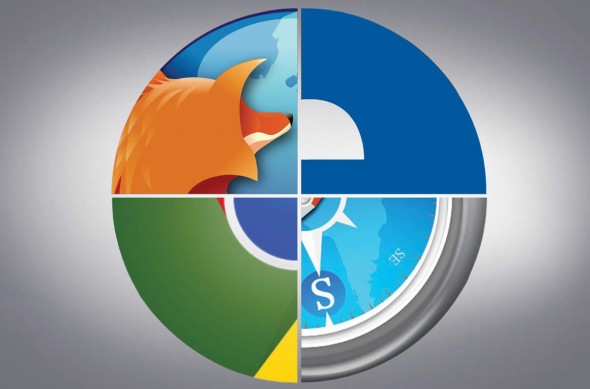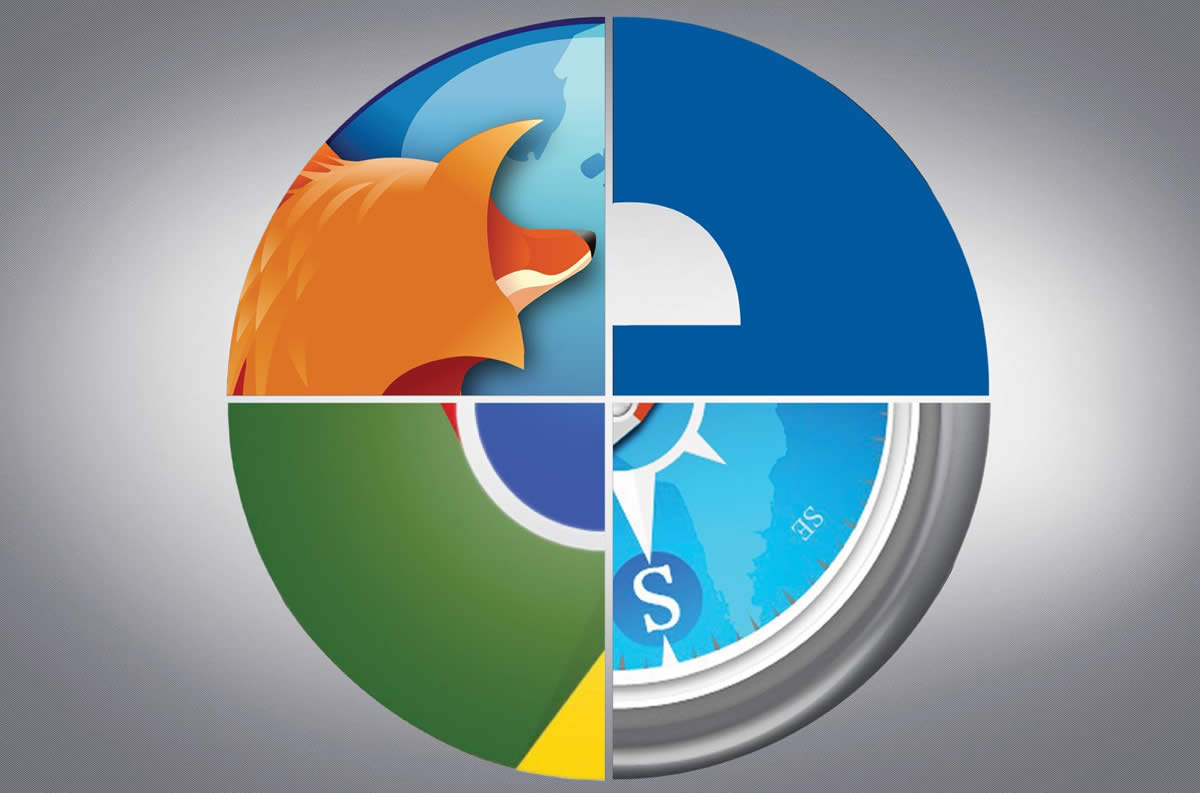
For the first time in years, Safari is finally hearing the footfalls of second place coming up behind them.
Their lead is shrinking…
Don’t get me wrong – Safari is still the undisputed champion of mobile browsing at the moment – holding a steady lead, Apple’s Safari was used by 58% of mobile browsers last month; second place was held by Google’s unbranded Android browser at 20.6%; Opera Mini came in at 11.2%; the “others” (Chrome, Internet Explorer, and various 3rd party browsers) held a combined 10% or so.
But what’s important is the difference from this past year. In August 2012, Safari’s mobile browser was used by an enormous 68% of mobile users. Android and Opera Mini held the next biggest chunks, leaving a paltry 5% or so for everyone else. Now, over the course of 12 months, Safari’s usage has dropped by a massive 10%. Where are these users taking their web surfing?
Why, the customizable and quirky 3rd party browsers, of course.
The Third Party Favourites
With Safari’s lead dropping, these 3 mobile browser competitors are excellent examples of 3rd party competitors that are slowly but surely picking up Apple and Google’s slack.
1. UC Web Browser
China-based UCWeb has experienced some massive success with over 400 million users, with a growing 100 million non Chinese users outside the boundary of the Great Wall. The company has announced that they’re going to put nearly $500 million dollars into the browser’s global expansion, gaming platforms, increased monetization, and cloud advancement to the browser. Not too shabby coming from a failed Blackberry messenger service company with 12 employees in 2006.
The Chinese-based company is looking into global expansion, especially in the countries of Brazil, Vietnam, Russia, and Indonesia. They have also expressed that they’re going to be making a major push for US citizen users in 2013.
Reactions of the mobile browser by more international consumers can only be speculated right now, but with a growing 100 million users already on board outside of China, the odds are looking for them – and bad for companies like Safari if they don’t counter.
By the end of 2013 the Chinese mobile browser just might make a global breakaway success if they can provide a useful, practical, and popular mobile browsing competitor to the traditional-yet-tired browsers like Safari that have been dominating the market for a long time.
2. Boat
Boat web browser is as simple as its name. Refined, discreet, Boat is a great example of a solid member of the lower tier in 3rd party web browsers that, though still growing, has the same speed, features, and abilities as a behemoth like Safari (users have claimed it’s even faster than super-speedy Dophin Jetpack, mentioned a little further down)
An interesting fact about Boat is that it basically evolved from the now-gone 3rd party browser Miren, popular for its sleek interface, and simple, customizable themes. If Safari was a department store, Boat is the quaint and friendly mom-and-pop store down the street that is thriving despite its big competitors. Go Boat!
Similar to the flurry of other 3rd party mobile browsers, Boat currently can’t boast more than 5 million downloads. However, what it lacks in big downloads it makes up for in features – accurate voice command, speed-dial startup pages, and even a “mini” version of the already-simplified browser. Great example of a small but fierce competitor in the mobile browsing market.
3. Dolphin
The Android-specific Dolphin browser is quickly becoming one of the most popular 3rd party browsers on smartphones. Why? Super speed, easy user interface, and it’s on a well-established version 10.0.
One of the original 3rd party mobile browsers, Dolphin has been tackling the biggest issues of mobile browsers (namely that they’re typically slow, clunky, and not very user-friendly in many cases) and in turn are making some big splashes in the mobile browsing arena. Though still a long way off from the likes of Safari or Chrome, Dolphin could become one of the next forerunning competitors of the “other” category, soon.
Dolphin released a new feature last year called “Dolphin Jetpack,” a feature that makes mobile browsing “stupid fast” (imagine Safari as a gigantic blue whale and Dolphin as a, well, dolphin, only wearing a jetpack. Big difference).
Dolphin is a poster child for a 3rd party browser that can garner massive popularity and success by tackling the important issues big party platforms like Google and Safari can’t – namely, customizable user interface and faster browsing (Dolphin even has a feature that loads your frequently-visited pages faster than anything).
The tide seems to be turning in favour of companies like Dolphin, boasting over 80 million downloads. With Safari’s lead shrinking, how many more downloads can we expect to see in 2014?
2013-14 Expectations of Mobile Browsing
Only a fool would think that juggernauts like Apple and Google will sit idly by while tens of millions of users switch to 3rd party platforms. Though we might not see a complete overhaul in Safari and Chrome on our smartphones, we can pretty much expect the big players to step their game up, especially in areas like user interface and global reach – if Safari wants to keep customers, they need to make their browsers stronger competitors with the 3rd party options.
Apple in particular will probably be forced to allow these 3d party mobile browsers on their products with full capabilities – at the moment, Apple’s infamously stubborn policy prevents major 3rd party browsers from receiving full access to the iOS (browsers like Firefox won’t even consider jumping to the iOS because of these restrictions) in place for their own default browser, Safari.
However, the better these 3rd party mobile browsers become, the more likely consumers will demand access. Apple will face a difficult choice – prohibit 3rd parties and risk losing customers, or grant 3rd party access at the expense of Safari.
Another interesting issue that will probably arise is the privacy aspect of mobile browsers (or lack thereof). Ever since news got out that the NSA was sifting through search histories, the issue of online privacy was rekindled immediately. That’s why VPN’s like TunnelBear will probably be making a major buzz soon.
TunnelBear, a Toronto-based VPN, has already seen massive success with over 100 million downloads to date. It ensures that advertisements or malicious fraudsters will only see unreadable data when they try and flood your mobile browser. TunnelBear even bypasses government-blocked websites (last month, TunnelBear helped tens of thousands of Turkish citizens connect to Facebook despite online government blocks to organize government protests after Facebook became restricted in that country – check out the full story here).
TunnelBear and other VPN’s might strike a major chord in the hearts of Americans and other people groups who aren’t interested in letting the government snoop on their browsing history any longer.
The mobile browsing world is certainly heating up in the second half of 2013 – for the first time, Safari is genuinely slowing down and 3rd party options like Boat, UCWeb, Dolphin, and the like are pushing full speed to catch up, inch by inch.
The future for mobile browsing is becoming less and less certain – what mobile browser do you think you’ll be using come July of 2014?

